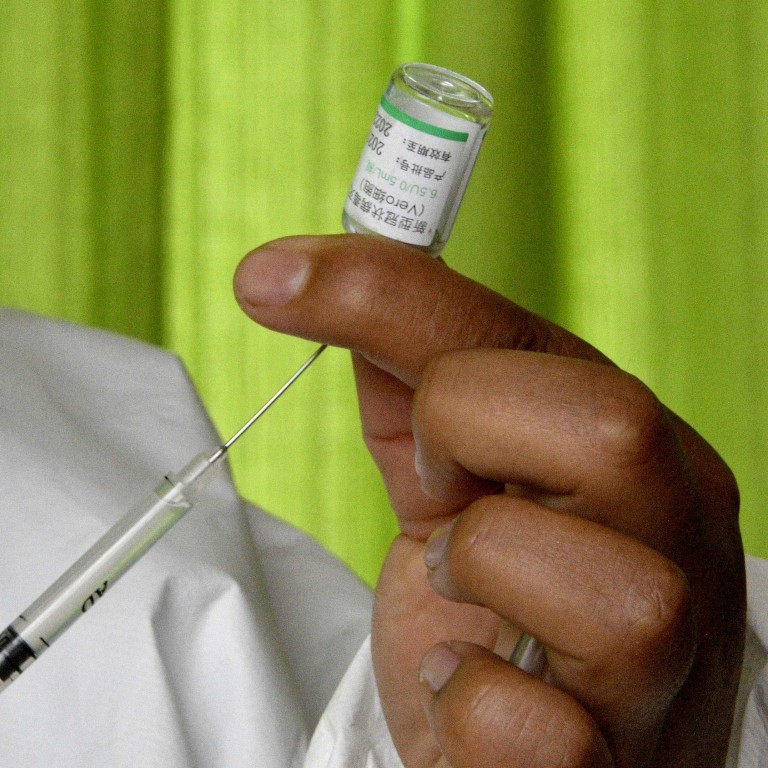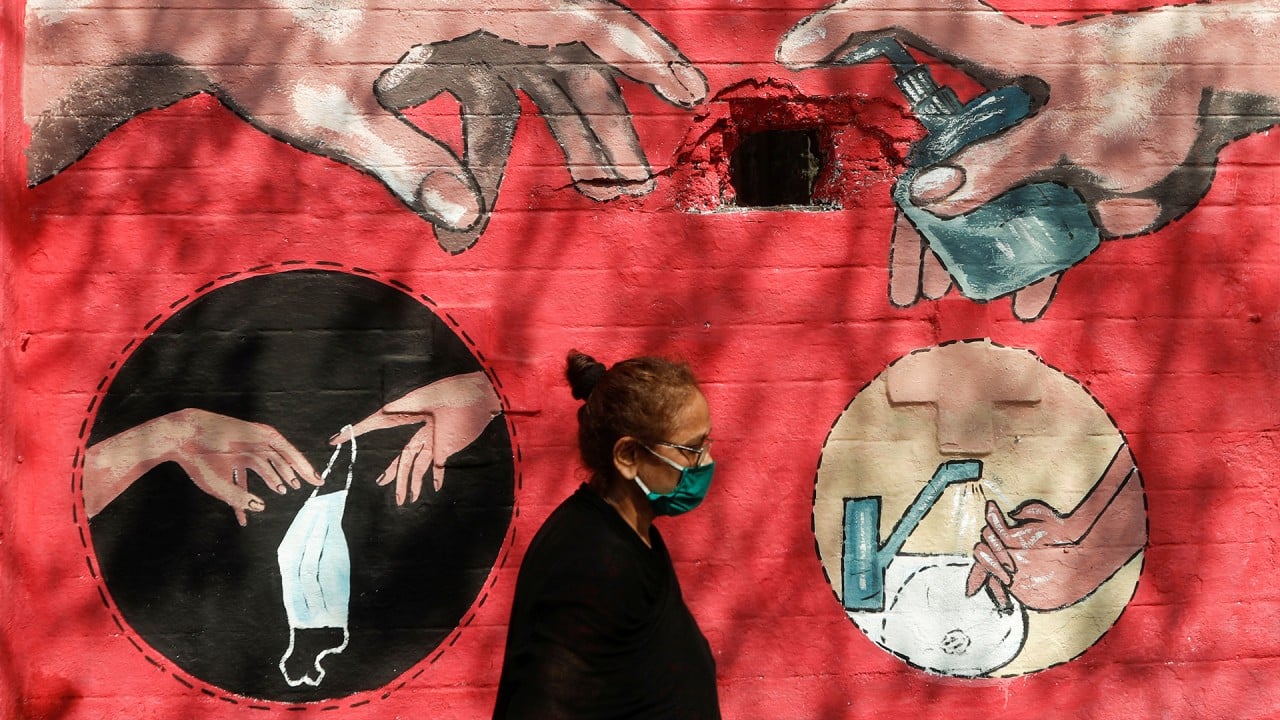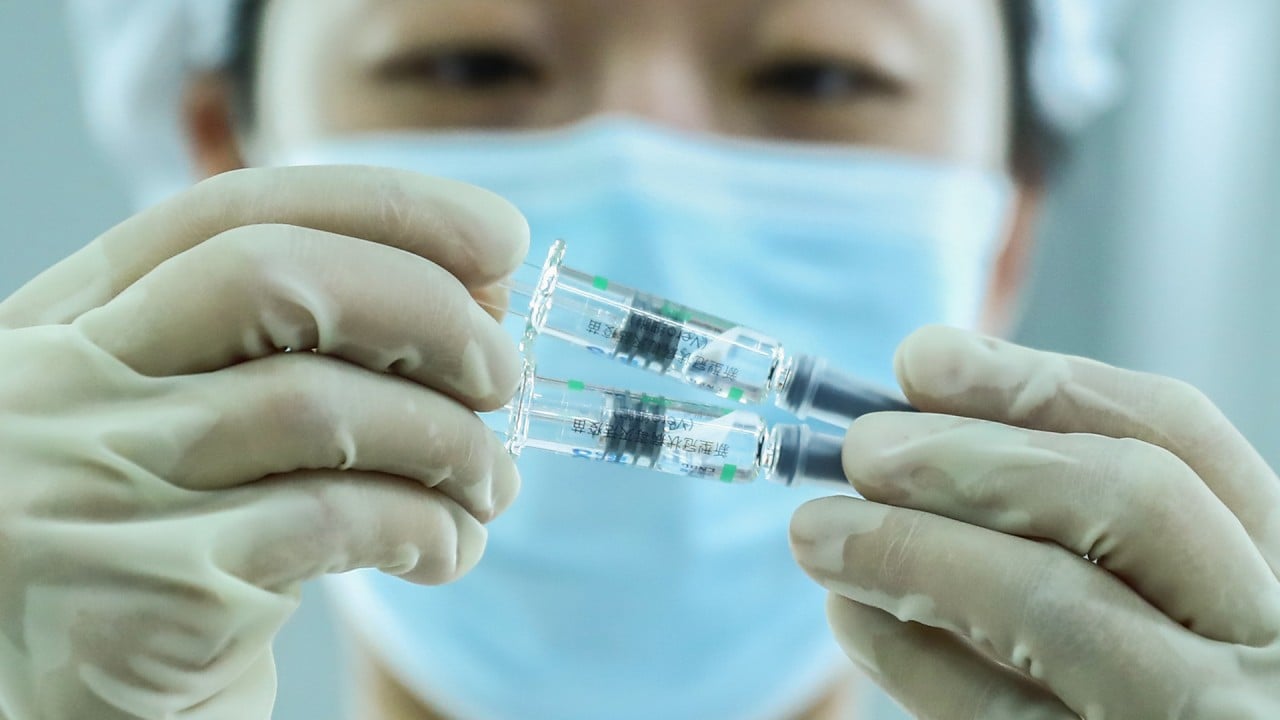
Coronavirus: China has cheaper vaccine technologies joining the race to beat the pandemic
- Protein subunit vaccines are considered safe and cheaper than inactivated vaccines and could fill the production gap
- China considers combining vaccines or extending intervals to increase protection against Covid-19
Two of Sinopharm’s inactivated vaccines have been approved for general use and some 250 million doses have been administered in China and overseas but one senior executive believes the new vaccine candidate will have the advantage in the long run.
“Inactivated vaccines have played an important role in the fight against the Covid-19 epidemic, but they require high-level biosafety control in the production facility and manufacturing process. The cost of production and management is higher,” Zhang Yuntao, vice-president of China National Biotec Group, Sinopharm’s vaccine manufacturing arm, told China National Radio.
“Gene-based vaccines do not have such special demands and are in a more advantageous position in the long run,” Zhang said, adding it would be much easier to scale up the production of such vaccines than other types of vaccine.
There have not yet been any details about the Sinopharm vaccine candidate and preclinical data has not been disclosed, but Zhang said the candidate was designed to cover the population aged over three years and would be very safe.
“Based on a vaccine of the same technology that has been approved for [emergency] use, the candidate will be safe, just like inactivated vaccines,” Zhang said.
China’s first mRNA vaccine ready for final-stage trials overseas
Expectations for protein vaccines are high after Maryland-based Novavax reported a high efficacy rate of 96 per cent against the non-variant Covid-19 virus in trials in Britain. The developer is working on an updated version after the vaccine was reported to have 49 per cent efficacy against the variant B. 1.351 originally detected in South Africa.
Unlike inactivated vaccines which involve the dead pathogen, subunit vaccines work with purified pieces of the pathogen to stimulate an immune response, meaning the vaccine will not cause the disease it prevents. The technology is considered very safe and mature and is widely used in developing vaccines against influenza, hepatitis B and varicella-zoster.
Such vaccines are cheaper than inactivated vaccines but might need help from adjuvants – substances that enhance an immune response – to boost their performance. They can be stored at a normal refrigerator temperature.
China last month approved one such vaccine – jointly developed by Anhui Zhifei Longcom Biopharmaceutical and the Chinese Academy of Sciences’ Institute of Microbiology – for emergency use in the country while it is still undergoing a phase 3 human trial involving 29,000 participants in Uzbekistan, where the vaccine has been approved for general use.
China’s first mRNA vaccine ready for final stage trials overseas
Shanghai-based vaccine expert Tao Lina said protein vaccines could fill the production gap of inactivated vaccines and several provinces in China were now only administering Zhifei vaccines for fresh inoculations and saving the inactivated vaccines for the second doses.
Professor Ivan Fan-ngai Hung of the University of Hong Kong, who is leading trials on combining vaccines to monitor whether such regimens offer better protection, said the results of human trials for the subunit protein vaccines were needed.
“In general, we have yet to know the effect of mixing the vaccination platforms. We are eagerly waiting the various trial results as well as the subunit protein vaccine trial results,” Hung said. “We will only know after the trials are completed.”
Other protein vaccine candidates developed in China include one from Chengdu-based Clover Biopharmaceuticals, which started dosing participants in global phase 2-3 clinical trials last month. The trial for the two-dose vaccine candidate will involve more than 22,000 adults, including participants aged over 60, at several sites in Latin America, Asia, Europe and Africa.
A subunit protein vaccine developed by Sichuan University and West China Hospital is also under phase 2 human trials. The vaccine is different from other candidates as it uses insect cells in growing the coronavirus spike protein.




